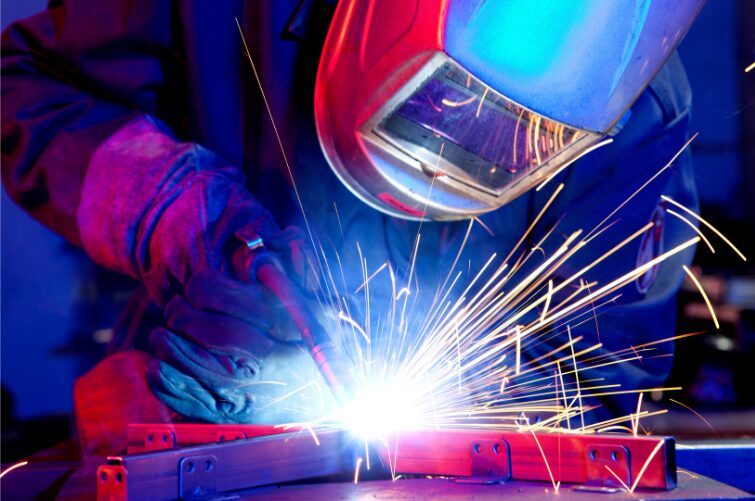API 579-1/ ASME FFS-1 FITNESS-FOR-SERVICE EVALUATION COURSE
PERTH 17-19 FEB 2026 | THREE DAY COURSE
Apply the requirements of API 579/ASME FFS-1 to make run, repair, and replacement decisions for pressure vessels, piping, and tanks.
Fitness-for-service assessment is a multi-disciplinary engineering approach that is used to determine if equipment is fit to continue operation for some desired future period. The equipment may contain flaws, have sustained damage, or have aged so that it cannot be evaluated by use of the original construction codes. API 579-1/ASME FFS-1 is a comprehensive consensus industry recommended practice that can be used to analyse, evaluate, and monitor equipment for continued operation. The main types of equipment covered by this standard are pressure vessels, piping, and tanks.
This three day course helps participants understand and apply the API/ASME fitness-for-service standard in their daily work. The material presented in the course shows how the disciplines of stress analysis, materials engineering, and nondestructive inspection interact and apply to fitness-for-service assessment. The assessment methods apply to pressure vessels, piping, and tanks that are inservice.
The course includes an extensive set of notes to supplement the contents of the recommended practice, and the recommended practice contains numerous example problems that illustrate fitness-for-service assessment.

KEY TAKEAWAYS
By participating in this course, you will learn how to successfully:
- Analyse, evaluate, and monitor pressure vessels, piping, and tanks for continued operation
- Explain how to apply background information on fitness-for-service assessment, especially as it applies to the refining and chemical process industries, which are the primary focus of API 579
- Identify the main parts of the API/ASME standard, as well as the annexes
- Explain the practical application of the techniques incorporated in API 579-1/ASME FFS-1

WHO SHOULD ATTEND?
This course is intended for engineers and engineering management engaged in the operation, design, analysis, and maintenance of plant facilities. Participants should have a Bachelor degree or equivalent experience in engineering. A general knowledge of stress analysis, materials behaviour, and fracture mechanics are helpful.

About the Presenter: Gregory Brown
Gregory Brown PhD is the principal and owner of Blue Ring Engineering. He is a current voting member of the ASME/API Joint Committee on Fitness-For-Service (API 579/ASME FFS-1). Dr. Brown currently performs computational mechanics and fitness-for-service assessments for a variety of industries using API 579, as well as supporting litigation and failure analysis. He also develops specialized software and methodologies for structural analysis and life assessment. Previously Dr. Brown was the Chief Engineer for TEAM/Quest Integrity.
Dr. Brown joined Dr. Ted Anderson in 2001 at Structural Reliability Technology, which later became part of the Quest Integrity Group. Prior to SRT, he developed algorithms to update industrial finite element models using experimental measurements and performed flutter analyses of F16 and F18 fighter aircraft. Dr. Anderson, Dr. Brown, and the engineers at Structural Reliability Technology performed much of the work that was incorporated into API 579.

COURSE OUTLINE
Day 1
- Introduction – lecture and discussion
- Fitness-for-service Engineering Evaluation Procedure (General Roadmap for Parts 3 through 13 of the API/ASME Standard) – lecture and discussion
- Assessment of Equipment for Brittle Fracture -lecture, discussion, and examples
- Assessment of General Metal Loss – lecture, discussion, and examples
- Assessment of Local Metal Loss – lecture, discussion, and examples
Day 2
- Assessment of Pitting Corrosion – lecture, discussion, and examples
- Assessment of Hydrogen Blisters and Hydrogen Damage Associated with HIC and SOHIC – lecture and discussion
- Assessment of Weld Misalignment and Shell Distortions – lecture and discussion
- Level 1 Assessment of Crack-Like Flaws – lecture, discussion, and examples
- In-class problem solving: general metal loss, local metal loss, and Level 1 crack assessment
Day 3
- Introduction to Fracture Mechanics; Level 2 Assessment of Crack-Like Flaws – lecture, discussion, and examples
- Assessment of Components Operating in the Creep Regime – lecture and discussion
- Assessment of Fire Damage – lecture and discussion
- Assessment of Dents, Gouges and Dent-Gouge Combinations – lecture and discussion
- Assessment of Laminations – lecture and discussion
- General Discussion and Course Wrap-up
COURSE DETAILS
- PERTH: 17-19 February 2026, Novotel Perth,
- 388 Murray Street, Perth; registrations open now
- Registration first day: 8:00am local time
- Course time: 8:30am – 5:00pm
COST
Weld Australia Members: $3610 inc GST
Non Weld Australia Members: $3810 inc GST
Please note: in order for the course to go ahead, minimum attendee numbers must be reached.
Payment is required at the time of booking. Cancelation four weeks prior to the start date will not be refunded.
FURTHER INFORMATION
For further information about this course, please contact: Danielle Pennington (Corporate Engagement Manager) on d.pennington@weldaustralia.
